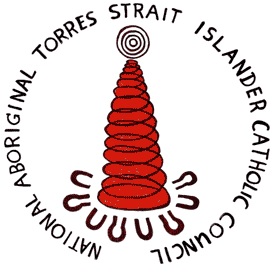How Christians can unpack the baggage of colonialism this Australia Day
From: https://www.abc.net.au/news/2019-01-24/christians-unpacking-baggage-colonialism-australia-day/10739750
RN By Meredith Lake for Soul Search
Why do a growing number of people mark Australia Day by going to church?
It seems a novel preference to attending a barbecue, citizenship ceremony or even a political rally. But this practice can be traced back decades to the same period, and even to the same people, as the first Aboriginal Day of Mourning.
Church attendance on Australia Day points to the complex relationships between Christianity, colonialism and race — relationships that are still being debated today.
‘Aboriginal Sunday’
On January 26, 1938, Yorta Yorta man William Cooper and others held a protest meeting to coincide with public celebrations of the sesquicentenary of European settlement.
The group demanded “full citizenship rights and equality” for Aboriginal people.
In the aftermath, Cooper called on the Christian churches to observe “Aborigines Sunday” around that time every year. The idea was endorsed by the National Missionary Council and implemented in several denominations from 1940.
During the 1950s, the observance of “Aborigines Sunday” shifted from late January to early July. With government support, the event developed into NAIDOC Week.
The church elements lapsed, but not because the legacies of colonialism and Christianity had been uncoupled from one another.
In fact, present-day arguments about race and nation retain religious aspects.
According to Joanna Cruickshank, senior lecturer in History at Melbourne’s Deakin University: “We can’t have those conversations without talking about Christianity, and that’s been obvious for decades.”
When religion and race collide
Growing up, Gomeroi woman Bianca Manning assumed that Christian faith was incompatible with Aboriginality.
“I grew up knowing about my culture, proud of my culture,” she explains in the first episode of Soul Search, a new program on RN.
“But then in year 10 I encountered God and started to follow Jesus.
“That’s not something I ever thought I would do, because my view [of Christianity] was of the colonisers’ God — something that’s trying to take our culture away from us.”
At 80 years of age, Christian leader Aunty Jean Phillips is grieved by the relational distance between Aboriginal and non-Aboriginal Australians.
“I’m continually meeting people in churches who have never met an Aboriginal person” she says.
“And they expect me to be very excited … I say, ‘Look, we’ve been here for thousands of years. Where have you been?’
“It’s important that we get to know each other, because the history of this nation has never been dealt with.
“Your history is our history, and our history is your history.”
Reviving the Australia Day church services
In this spirit, Aboriginal Christians have revived the idea of church services to mark Australia Day.
Aunty Jean began at South Brisbane Anglican Church a few years ago, with a Friday night service attended by 30 people.
With prayer, she says, the community has grown larger.
In partnership with the Christian justice movement Common Grace, and with the support of National Council of Churches Australia, Aunty Jean’s #ChangeTheHeart prayer services are now held in every state and territory, and several regional centres.
Christian leader and Waka Waka woman Brooke Prentis says she’s seen prayer foster understanding and unity.
“We talk about stolen land, stolen wages, stolen children and generations — stolen lives,” she points out.
“We need our non-Aboriginal brothers and sisters singing with us, praying with us, and gathering with us.
“That’s what the services are all about.”
Last year, Australia’s Uniting Church accepted the invitation of the Aboriginal and Islander Congress to observe the Sunday before 26 January as a day of lament and mourning.
It is now a fixed part of the church’s liturgical calendar.
#ChangeTheHeart
Christian services of prayer and lament express a distinctive position in the current debates over Australia Day.
Amid calls to “change the date”, and indeed to “change Australia“, Christian communities are rallying behind a call to “change the heart”.
According to Aboriginal church leaders, this is a spiritual process — with potentially national implications.
Ms Prentis emphasises the role of Jesus in this movement to “change the heart”.
“The call to the cross should jump class, race and privilege — and denomination,” she says.
Bianca Manning agrees, citing a Bible verse to illustrate the transformation:
“I will remove from you your heart of stone and give you a heart of flesh.”
Ms Manning says it’s a picture of “someone stubborn, who struggles to listen, who is quick to judge” becoming open and humble.
In an Australian context, she says the verse calls on people to accept that “maybe I don’t know everything” and encourages them to “actually listen to Aboriginal people”.
Dr Meredith Lake is the presenter of Soul Search, a brand-new program about faith and meaning in Australia. Soul Search airs 6:00pm Sundays on RN.

Please also read the 2019 National Aboriginal and Torres Strait Islander Catholic Council statement on Australia Day



